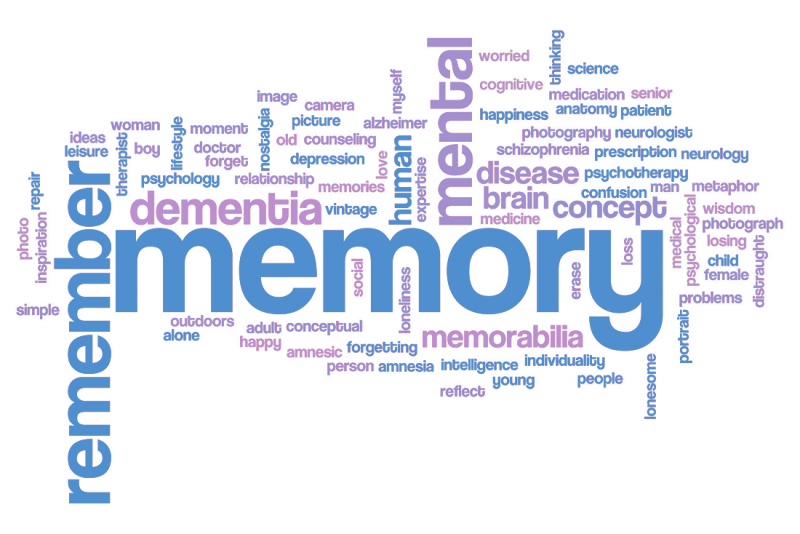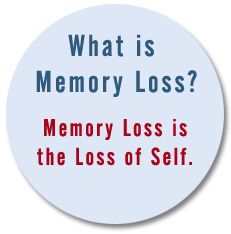Memory loss is a distressing part of dementia, both for the person with the condition and for those people that are around them. Fortunately, there are still ways to help people manage their memory problems and stay confident and independent as much as possible. Here are some of the ways to support a person with memory loss and offers useful tips and advice on the subject.
Here are more tips in this link: https://www.alzheimers.org.uk/memoryhandbook
Dementia Associated with Memory Loss
One of the first signs of dementia is memory loss or more specifically Alzheimer’s disease. At first memory lapses can be directed as normal forgetfulness that adds up to people who are growing older or when they are stressed. Although when a person have a dementia it will become clear that the memory problems will be more severe and persistent. The family and friends will most likely observe these characteristics changing with the patients’ attitude. Memory loss will also affect the changes in the way they think behave and feel which will make it harder to for them to do the basic tasks being done for day-to-day activities.
There will always be a different scenario for every person affected with memory loss. Some will still be able to do the things they do for a longer period of time while others may not retain the skills anymore. A person will remember facts and experiences from earlier years of their lives but may forget the current events or familiar situations.
Memory Loss in Dementia
Eventually, it will affect the daily routine people with dementia will experience difficulties with their memory. Hippocampus is the part of the brain that is being damage and will result to memory loss. It depends on the part of the brain that is damaged that will cause different effects of memory loss.
Most of the people that are affected with dementia will experience the following problem:
- Not remember recent conversations or events
- Losing or misplacing items around the house
- Not be able to do easy tasks like making a cup of coffee
- Not remember appointments or important dates
- Not remembering to take medications
- Getting lost in the neighbourhood
- Recognizing faces
The memory loss will get worse as the person’s dementia progresses. In the early process, the person’s long-term memory will less likely to get affected. Older memories are not deleted because it is firmly established and cannot recall recent memories.
Memory also claims a sentimental value. Emotional influence what and how a person remembers and some memories can make the person feel a certain way. The memories can be triggered by one part of the memory like the smell or music. Later on, people’s emotional memory will be affected by dementia. People can still remember and how they felt about something even if they can’t recall other details about it before this happens. Just for example, someone with dementia might not remember where and when they had a vacation but will remember the feeling when they got there.
Here are some things that people with dementia may be able to recall for longer. These include:
- Things that happened long ago like in the late adolescence or early adulthood
- Things done many times
- Things that have been practised again and again
- Dates and events that has made them feel strong emotions like birth or marriage
How does memory loss affect emotionally?
Memory loss can be hard for people because it can affect them strongly on how they are supported by those whom they expect to support them. There are different ways people react in this memory problems but most commonly, people become frustrated and worried by them. These difficulties will make them lose their self-confidence and embarrassed by their difficulties. People with memory problem will eventually lose those things that they usually do and withdraw from situations. There may come a time that they will accuse others for moving and stealing items to where they were supposed to. If you provide support, you must be aware on how to help through the hardships. These tips will help you:
- Talk to the person with memory problem and encourage them.
- Frustrations will arise and you need to support them.
- Do not focus on the future but instead focus on the present situation and support them to cope with the hardships on their day-to-day basis.
- Make them focus on their strengths and encourage them to continue doing these things.
- As much as possible, make them participate in different activities and encourage them to spend time socializing with other people.
- Be sensitive and try to avoid conversation and activity that might focus on their weaknesses but make sure not to undermine the person or dismiss their feelings.
There are people that support dementia and will most likely feel different emotions due to the person’s memory loss. It is good to remember that the hardships being gone through by the person is because of dementia and may help you how to deal with the feelings. You can look for more information here: https://www.alzheimers.org.uk/site/scripts/documents_info.php?documentID=119.
People with memory loss might have concerns that will put them at risk. For example, gas detector is an assistive technology product that can help reduce risks. When a person can still make decisions then it is important that they are still able to do so and base it in this link: https://www.alzheimers.org.uk/site/scripts/documents_info.php?documentID=354. Most of the time, it is a case of balancing the risks versus the benefits and using this to find a solution.
How to support someone with memory loss?
Overlooking current conversations or events
People with have problems in storing and recalling current conversations and events. The hippocampus is the part of the brain that allows new information to be processed and may be damaged. This makes it harder for the person form new memories and learns new information. The person may forget a conversation they’ve had, something they’ve recently done or an appointment or plan. You have to take note that the person is not being difficult and intentionally ignores you. The reason is that the brain was not able to keep the information and it looks like they’ve heard it for the first time. Here are some useful tips that can help:
- Stop telling the person that they have learned the information before.
- Investigate if the person needs to know about the recent conversation or event, stressing this can make things worse.
- Make a day to day routine as this makes it easier for the person to recall things to be done for the day.
- Encourage them to use a journal or diary to write the things that happened. Images and words are effective tools. This makes the person remind them for what they have done.
- Instead of asking vague questions, you can include cues, prompts and try to give context. For example: ‘It must be a while since breakfast. Are you hungry?’ rather than ‘Have you had breakfast?’
- Use sticky notes or wall calendar for one-off tasks and posting regular reminders for tasks the person does more often.
- Using assistive technology devices like automatic calendar clock, to remind the person about important things.
- Give them one thing to focus at a time like giving the person too much information may be overwhelming.
- Give out simple information and repeat it often.
- Cut down interruption such as background noise.
- Ask simple and specific question like “Do you want milk or tea?” rather than, “What would you like to drink?” This can assist them in making a choice by trimming down the options.
Having a hard time looking for the right term
People with dementia may have a hard time to find the right term in a conversation. They may also struggle with remembering names of items or people. They may:
- Finding difficulty to use the right term in a conversation like being the term of ‘on the tip of my tongue;’
- Forget to remember the meaning of terms and words;
- Forget other people’s names even if they are close to each other;
- And forget the names of objects.
There are different ways to support the conversation which can make it harder to communicate with a person with dementia:
- To avoid embarrassment from the part of the person with dementia then give them enough time to find the word but not too long.
- Decipher the context of what the person is saying – it could give them clues to the word they want to use.
- Make sure that the environment is not too distracting so turn down background noise.
- Scrutinize the time of the day that the person is at their best. For example, they may be more energized during the morning.
- Don’t hurry the person because it could make them feel stressed and under pressure which will make it worse. Do not complete sentences for them and be patient.
You can look for more information in communicating with a person with dementia in this link: https://www.alzheimers.org.uk/site/scripts/documents_info.php?documentID=130.
Tips: Guiding the person with dementia when they seem to forget the name of people and objects:
- Give subtle hints on how to remind them or prompt them on the name of the people or object.
- Do not expose the person that they have forgotten something.
- It is difficult to remember names if they’re tired or stressed. Try to wait until they’re feeling a bit better.
- Whether it would be helpful for other people to introduce themselves when they speak to them and ask the person. This may depend on how the person feels about their difficulties and whether they are happy for others to know.
- Benefit from using prompts, cues and context in guiding the person with dementia with naming items. The person may recognise something and what it is used for, even if they can’t remember its name.
- Use a ‘memory box’ or ‘memory book’ with photos and brief information on people for the person with dementia to refer to.
- Avoid busy places like markets, shopping malls, etc – the person may cope better in situations with fewer people.
Forgetting things
People with dementia often lose and misplace items as a result of their memory loss.
They may:
- Lose common items like glasses or keys
- Leave items in unusual or ‘wrong’ places like keys in the bathroom or tea bags in the fridge
- Put an item somewhere for safe keeping and then forget where it is.
If you know the person then you will be able to know where they usually put their things and will be aware of possible connections that you can make.
One of the most common scenarios is that the person will think that someone is taking items if they think that they are not the one getting it. This can be hard for people around them and for the person with dementia. The person with dementia is trying to make sense of their reality and what is happening. They may think that someone took their things because they cannot remember where they put their things. There may be truth in what the person is saying and don’t ignore that because they have dementia. It’s important to see things from their point of view.
Tips: supporting a person with dementia when they lose items
- Try to keep things in the same place where the person is used to them being there.
- Keep a copy of items that are important or most of the time gets lost.
- Keep the surroundings clean by having the room and drawers organized so that things can be found easily. The lighting of the place is also a factor.
- Use visual clues that give hints where the items go like pictures or photos on different parts of the house.
- Put regularly used items where they can be seen and are easily accessible.
- Get a locator device to guide them in finding lost items. You can get more information in this link: https://www.alzheimers.org.uk/site/scripts/documents_info.php?documentID=109.
- As a person who knows better, you need to figure out what is more important a lost wallet or a misplaced cutlery in the wrong place.
Hardship on daily routine
As dementia progresses, following daily routine may become more and more difficult even if they have done it for many times like making a cup of coffee, drinking medications or doing your hobbies. When this happens, it could be directed to the reason that they are having difficulties in remembering the order of actions is needed.
It can be difficult for those around them when they begin to forget the usual things they do. One of the concerns when the family and carers find out that they are having difficulty is their safety and their ability to handle usual tasks which will lead them to control the person from doing the tasks. It is highly suggested that you need to guide the person with dementia and consider the following tips.
The use of assistive technology could be helpful because there are a lot of devices in the market right now that can help people with dementia do their daily tasks and activities. Motion sensor is also helpful in playing recorded messages to remind people to do tasks when they pass the sensor. For more information, check this link: https://www.alzheimers.org.uk/site/scripts/documents_info.php?documentID=109.
- Cutting down tasks into smaller and simpler steps will make them feel better.
- You can also make things easier for them by putting everything in one place for them to be able to complete a task like coffee, sugar, milk and mug.
- Keep workspaces clutter-free and put items that are being used regularly in sight.
- Put reminder signs to work as a prompt like instructions on how to use the cooking equipments.
- Clearly adjust the environment of the person like labelling stuff around the house and make sure that the area is well-lighted.
Looking for help from an occupational therapist should also be considered. They can also suggest ways on how to cope with the situation by engaging in different strategies and taking advantage of suitable devices that will help them in their daily tasks.
Getting lost in familiar surroundings
Sometimes, a person with dementia goes to stores or shops and will not remember why they are there which will lead to forgetting the environment and getting lost. Follow these helpful tips:
- Attach an identification card on the person whenever they are going out that contains full name and contact details of the best person to contact for them. There is also an emergency identification device like MedicAlert which is also helpful.
- If the person permits to then it is good to notify the neighbours and local shop owners about what they are experiencing. If ever the person gets lost then they can help, the use of a mobile phone can also be useful. There are user-friendly mobile phones that are available if the person will find it difficult to use one.
- If you don’t want them to get lost, just consider ways on how to guide them by going out with them.
- Putting GPS device to the person as a way of taking advantage of assistive technology products which can locate the person by satellite or mobile phone technology. With this assistance, you can go out and will assure them that they will not get lost because if ever they get lost, someone will know where they are. But before that, advantages and disadvantages should be considered and which method will be most helpful and appropriate for the person to utilize. You can check more information here: https://www.alzheimers.org.uk/site/scripts/documents_info.php?documentID=2298.
As dementia progresses the person may even get lost in their own home, or not remember that where they are situated is their current home. This is happening because they may be thinking about their childhood home. The following tips may be helpful:
- Put sentimental items that belong in the person’s home.
- Put a note of the complete address of the home by posting it where it can be seen by the kitchen with a whiteboard or by the front door.
- Constantly remind the person about the home they used to live in and what it means for them. It will make them place it in the past.
Forgetting appointments
People with dementia most commonly experience forgetting events that are about to happen like medical appointments, family visits and anniversaries.
- Contemplate with using calendars and clocks to point out to the person of events that are about to happen. Putting them in locations where the person with dementia will be able to see them like the bedside table or by the phone. This is suggested to those people that are confident with using phone and reminder.
- If the person is well-versed in using mobile phone or can use an online calendar, consider entering reminders for events and appointments.
- Use a noticeboard to display appointment cards where the person with dementia will be able to see it quickly.
- Setting up a reminder text before the appointment will be a useful idea if the person uses mobile phone.
- Follow the events in the past like how the person remembered details and using this technique will be successful than learning new tricks.
Remembering faces
There will be a difficulty in recognizing people when the dementia progresses. The brain cannot recall faces and put together visual information. The following may be the difficulty of the person:
- Remembering faces especially those that are familiar. It can help them recognizing someone when they hear the voice speak, smell the perfume or the aftershave.
- Looking at their face in the mirror which will somehow make them feel that they are looking at another person.
- Remembering a relative or a close friend that is visiting for they may think that there is an intruder in the home.
They may even think that a younger relative is their spouse or parent. They believe this because they are living in a different time period. When this happens, they can remember the memories from the past but not the current ones, this is one of the reason why the person with dementia will not recognize their spouse because they will actually think of a different partner, one that is much younger which in turn, will recall the younger version of the relative of the spouse. Aside from that, the possibility of not recognizing the children will be possible because they will think that they are younger and they will think that they are not yet old enough to have children.
Not remembering people can be difficult for those that care for the person with dementia and the ones that have dementia itself. It should not be taken personally. Although, it could be hard at time when they won’t recognize those that are close to them but there is still an emotional attachment to the person because they feel safer and happy in the company of that person. These tips will surely help:
- Be vigilant when giving ways to remind the person without actually pointing out that they have memory loss.
- Memory book that contains details of the family and friends can be useful for the person.
- Give assurance to the person and see to it that you reach out to them. If they seem to forget people around them, they may feel antsy with strangers around them and get stressed with the situation.
- Even if they don’t recognize you, make the effort to respond whenever they show as a sign of courtesy.
- Do not show and make them feel that you are offended or upset when not recalling you or your name – it is not a personal rejection. Instead of making them feel bad, focus on assuring them and make them feel better.
- Let them know about how you feel about the situation with a person that you trust and try to check your feelings.
Alzheimer Society’s Talking Point is an online discussion forum that can be a helpful guide. You can find practical tips and suggestions, advice and talk with others on the same situation as yours.
Techniques on how to address memory loss
There are different ways on how to help people with dementia as to how they can cope with memory loss and the emotions towards it such as getting frustrated and losing self-esteem. Some techniques may require professional expert like a nurse, therapist or counsellor but can also be useful for family care as well.
Life story and reminiscence work
With the life story approach, it needs for the person with dementia to create a record of personal triumphs and important experiences, people and places in their life. For them to be able to do this, they will need help and an extra hand from family, relative or a professional to finish the task. This personal record can in a form of a book, photo album or something that is done digitally like using a computer or a smartphone. As a matter of fact, it is proven that people enjoys llife story and helps them with their memory problems. It has also a great value for the carers to further understand the situation of the person when this material is present.
Reminiscence encourages people to talk about a time of their life from the past. It can be done in a group session or a one-on-one basis and can be guided by the carers like a professional, a friend or a family member. It can be done with the use of prompts like using music, objects or photos which can be significant to the person. Reminiscence can boost the self-esteem, confidence and sense of self and as the same time, can improve social interactions with others.
It might also bring back difficult memories and the person may become upset about it. When it happens, make sure that the person with dementia should be supported whether or not, they may express the feelings and address the memory if possible.
Cognitive stimulation including cognitive stimulation therapy (CST)
Cognitive stimulation is a process wherein it includes activities and exercises that stimulate thinking, concentration, communication and memory in the person with dementia. It is commonly done in a group session or small group but can also be done in one-on-one sessions. It focuses in the actual time and place by talking about day-to-day interests, reminiscence and information.
Cognitive stimulation therapy or CST is usually done in structured treatment that takes place in groups. It takes a few weeks of sessions and can boost the memory and other mental abilities. Group cognitive stimulation is recommended for this type of therapy for people with mild to moderate dementia.
Cognitive rehabilitation
This type of therapy is when the person with dementia works together with a therapist on specific difficulties that they can work on together. One of the common activities being done is remembering names of the people that they have just met and how to achieve this. This activity focuses on the important things to the person with dementia like their closest ties. It also aims to improve the memory and attention.
Cognitive stimulation and cognitive rehabilitation can help improve the quality of life for people with dementia.
There has been a wide report in the scientific literature about the ingestion of probiotics and its health benefit gained from it. Definitive mechanisms have yet to be identified for the ability of orally administered bacteria to modulate a number of biological processes ranging from the production of inflammatory cytokines by immune cells within the gastrointestinal tract to the adhesion of pathogenic bacteria to the mucosal gut wall. Whereas multiple mechanisms may be operative in these situations, an alternative hypothesis described is that there may be a shared mechanism that essentially links the neural and immune responses to probiotic administration that leads to the claimed prophylactic effects.
The idea that probiotic bacteria administered to the intestine could influence the brain seemed almost unbelievable. One of the researches demonstrated the ability of probiotics to influence psychological states imply that the mechanism by which probiotics influence the host may extend beyond those, which address their well-recognized ability to influence immune-related pathways. For example, administration of the probiotic Bifidobacterium infantis to rats subjected to a forced swim test resulted in neurochemical alterations in addition to attenuation of pro-inflammatory responses that suggested a potential antidepressant capability for the administered probiotic. The administration of a probiotic formulation consisting of Lactobacillus helveticus R0052 and Bifidobacterium longum R0175S to both human volunteers and rat models significantly attenuated psychological distress reduced anxiety-like behavior. It has a profound clinical applications given the well-documented occurrence of psychological abnormalities that accompany a number of gastrointestinal disorders with the ability of a probiotic to function as an axiolytic such as those associated with chronic intestinal inflammation.
Microbes can produce and respond to neurochemicals according to Mark Lyte’s hypothesis paper. These compounds can induce neurological and immunological effects in the host. The immunomodulatory effects of probiotics have been well-documented but so far not linked specifically with neurological outcomes.
The researchers from the University of Toronto, Massachusetts Institute of Technology and University of Calgary, found that the mice did not display behavioral abnormalities while infected or even after the infection cleared. However, when exposed to stress, they displayed memory dysfunction. When the infected mice were given daily probiotics prior to, and during, infection, memory was not impaired. It was concluded that “probiotics could provide benefit in relation to behavioral abnormalities in patients with irritable bowel syndrome.”
There are many Irritable Bowel Syndrome (IBS) patients report difficulty with memory, often attributing it to the pain they suffer during flare-ups. This study suggests that probiotics are not only helpful in preserving memory during bouts with intestinal infection, but necessary, proven by the deficits exhibited by the mice with completely sterile systems. Omega 3 is a remedy for memory problems which addresses brain health and with regular diet that includes probiotics may prove to be more effective.
As of now, there is evidence showing anti-inflammatory effects of lactobacilli in the gut but some evidences showed that they or bifido bacteria confer immunomodulatory effects in inflammatory bowel disease patients that induce clinically significant ameliooration of the disease. This does not rule out strains being identified with this benefit in the future or being used to induce neurological effects like pain or depression in conjunction with immunomodulatory drugs that target the site of inflammation.
Studies on clinical populations like chronic fatigue syndrome, and fibromyalgia where lower levels of bifidobacterium and higher levels of lactic acid bacteria have been reported, have found evidence to suggest that poorer gut health is correlated with more severe neurological and cognitive deficits such as nervousness, memory loss, forgetfulness and confusion. There have been few studies to directly assess the effects of probiotics on cognition. A study by Benton et al., has been one of the few chronic intervention studies to directly investigate the effects of probiotics on cognition. The effects on cognition were not in the direction that might have been expected. At the day 20 of intervention, individuals in the probiotic group were found to perform significantly worse on a test of semantic memory in comparison with placebo. However, considering the scarcity of other studies to investigate the cognitive effects associated with probiotics, further research is required to corroborate these findings.
Microbial endocrinology-based hypothesis thus can guide the selection of probiotics based on a matching of the specific probiotic organism’s capacity to produce a particular neurochemical and the physiological or behavioral condition that is responsive to that neurochemical. Thus probiotic treatment could be tailored to treat the pathology and/or symptomology associated with specific disease or psychological states.








Leave A Comment